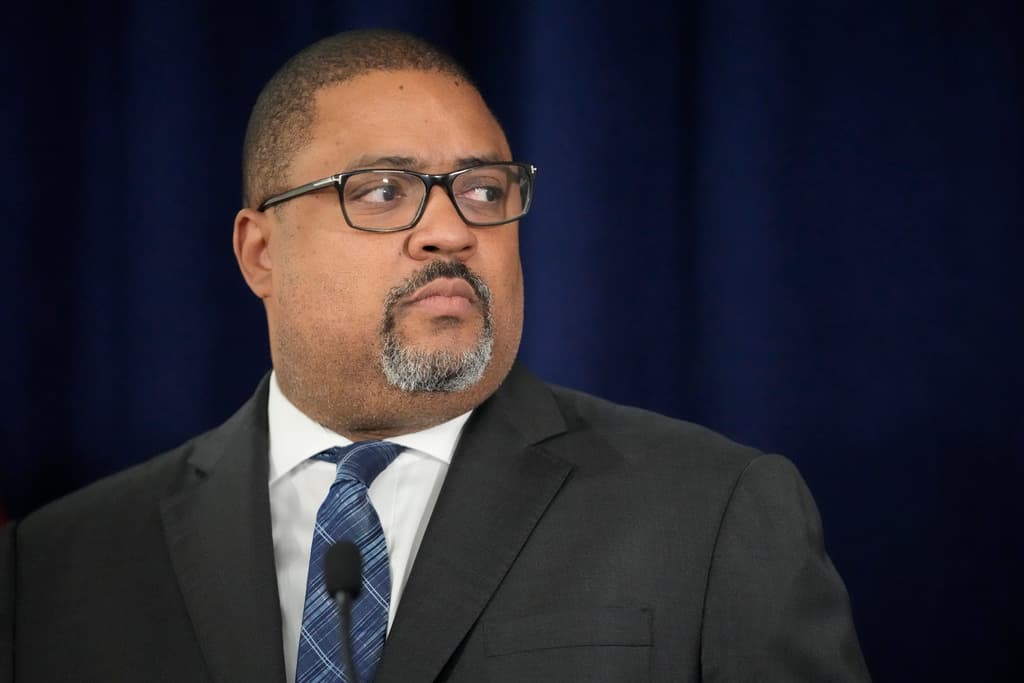Alvin Bragg’s Lazarus Strategy Against Trump
The district attorney spurns New York law doctrine for a scheme from Alabama to keep alive his case alive against the 45th president.

Any day now Judge Juan Merchan will decide the fate of President-elect Trump’s 34 hush money convictions in light of the impending inauguration. Our view is that anything short of dismissal injures the presidency. A sword of Damocles is no less perilous because it has merely swung threateningly. That is precisely what District Attorney Alvin Bragg is proposing in his push to preserve his convictions for four years — and then strike.
Call it the Lazarus Strategy to eventually sentence Trump to prison. Its legal lingo is “abatement-by-death.” It arises from the South. Alabama law mandates that “action shall not abate by the death of the defendant, but may be revived.” New York state, though, holds that if a defendant dies after conviction but before sentencing, “the judgment of conviction is vacated and the indictment dismissed.” That tracks Trump’s preferred outcome.
It is strange to see New York County’s top law enforcement official urge a New York judge not to follow New York law, but that is Mr. Bragg’s position. He acknowledges in his brief that he seeks a “novel remedy” that “New York law does not expressly provide for,” but offers as an excuse the “context of this unique case.” Translated into plain American it seems that not everyone is equal under New York law.
Mr. Bragg, though, wants to have it both ways — consider Trump dead for the four years of his presidency, and then, miracle of miracles, alive and sentenced the moment another president is sworn in on January 20, 2029. The prosecutor reasons that if Judge Merchan reaches for Alabama’s precedent, “any remaining steps in this criminal prosecution could simply be stayed” until the end of Trump’s second term.
There is nothing simple, though, about what Justice Antonin Scalia called “the boldness of the president.” Or the danger that a prosecutor could distract from the duty to “take care that the laws be faithfully executed.” The power of the presidency is such that the Department of Justice has determined that there is a “categorical” ban on prosecuting a sitting one. That has not deterred Mr. Bragg, who already has convictions in hand.
Judge Merchan has already ruled that the hush money payments are not protected by presidential immunity because they were unofficial and private. Now, though, Mr. Bragg wants “a notation” placed on the verdict — this is Alabama’s practice when a defendant dies — “to the effect that the conviction removed the presumption of innocence but was neither affirmed nor reversed on appeal because the defendant died.”
Even before Mr. Bragg manages to bring his case back to the land of the living, it could exert a distorting effect on Trump’s term. Prison would hang over every decision, and Trump’s time at the White House could be embittered by the possibility that his next stop could be the big house. This case was known as a “zombie” one after federal prosecutors declined to charge it. Now Mr. Bragg is showing his interest in the undead was no flight of fancy.

